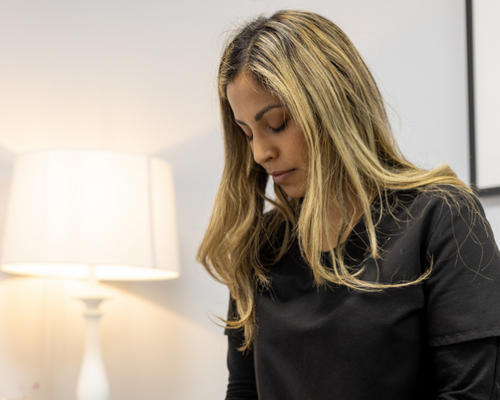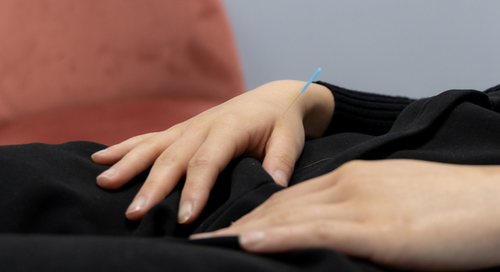Acupuncturist Monisha
24-07-2023
Acupuncture FAQs
with Acupuncturist Monisha

Acupuncture: Ancient wisdom, modern science
1. Does acupuncture hurt? Can I bleed from acupuncture?
Acupuncture is rarely painful, as the needles are only slightly thicker than a hair’s breadth. There may be a slight pricking sensation on insertion, and as the needle goes deeper and is manipulated you may feel a sensation of warmth, heaviness, a dull ache, or tingling at the point. Minor bleeding or bruising are occasional side effects of acupuncture. Blood thinning medications can increase the likelihood of this occurring.
2. When should I have acupuncture treatment?
Anytime is a good time to have an acupuncture treatment. Whether you are suffering from headaches, have a sore back, are feeling stressed, or in need of fertility support, acupuncture can be beneficial.
Even if you’re not suffering from any particular complaint, acupuncture can enhance your wellbeing and bring further balance to your body and mind. In fact, in ancient China, acupuncture was practised primarily as a preventive medicine, and the role of the acupuncturist was to keep you healthy and free of disease.


3. How often should I come in for acupuncture treatment?
Acupuncture is not a one-size-fits-all therapy, it is a holistic modality and is tailored to the individual. Your particular needs and medical history will be discussed during your consultation, and then your acupuncturist will formulate a treatment plan for you.
4. Are acupuncture needles reused?
All acupuncture needles are single-use and disposable. They are manufactured from high grade surgical stainless steel and are individually packed and sterilised with Ethylene-Oxide gas. This coupled with our strict infection control practices ensures that you are receiving the safest and highest standard of care.
5. Are acupuncture and dry needling the same?
Acupuncture and dry needling are not the same, although they both use the same tool, acupuncture needles.
Dry needling is a method used by various types of physical therapists to release knots in muscles by needling trigger points and other areas of pain. This technique targets the musculoskeletal system, and being decades old, is a relatively new therapy, when compared with acupuncture, a system that has been around for millennia.
Acupuncture is a complete healing system and thus has a much broader scope of application than its cousin, and is useful for treating everything from depression and asthma, to infertility and insomnia. The theory behind it is based on the flow of Qi (vital energy) circulating throughout the meridian system, along which the acupuncture points lie.
6. How can acupuncture assist with fertility?
Whether you’re trying to conceive naturally, doing IVF, or somewhere in between, acupuncture may be helpful:
- Assist in the management of conditions such as PCOS and endometriosis, which may be negatively impacting your fertility.
- Optimisation of egg and sperm quality, increasing your chances of conceiving a healthy baby.
- Enhancement of pelvic blood circulation, and relaxation of muscles and tendons and in the area to create favourable uterine conditions for embryo implantation.
- Regulation of endocrine and nervous systems, thus creating greater balance in the body and increasing natural fertility or improving ART outcomes.
- Regulation the body’s stress response by calming the mind and soothing anxiety, increasing the likelihood of success.
7. What can acupuncture help with? What can it support the treatment of?
Acupuncture can help with the treatment of myriad conditions. According to an evidence-based review of clinical literature, acupuncture can assist in treating a wide number of physical, neurological, mental and emotional ailments. The conditions that have been backed up by both clinical experience and research include:
- Acute and chronic pain conditions
- Tension headaches
- Management of migraines
- Hayfever
- Common cold
- Dental pain
- Osteoarthritis
- Anxiety and depression
- Infertility
- Menstrual problems and irregularities
- Pregnancy related ailments
- Labour support
- Nausea and vomiting
- Weight loss
- Insomnia
Acupuncture may be able to assist with conditions not mentioned above, however supporting scientific evidence may be limited. This doesn’t mean acupuncture won’t be able to help, just that there may not be enough supporting evidence yet, and new research in the field is always continuing.
If you’re unsure, have a chat with our friendly acupuncturists, and they will be able to help you determine whether acupuncture is appropriate for you.
